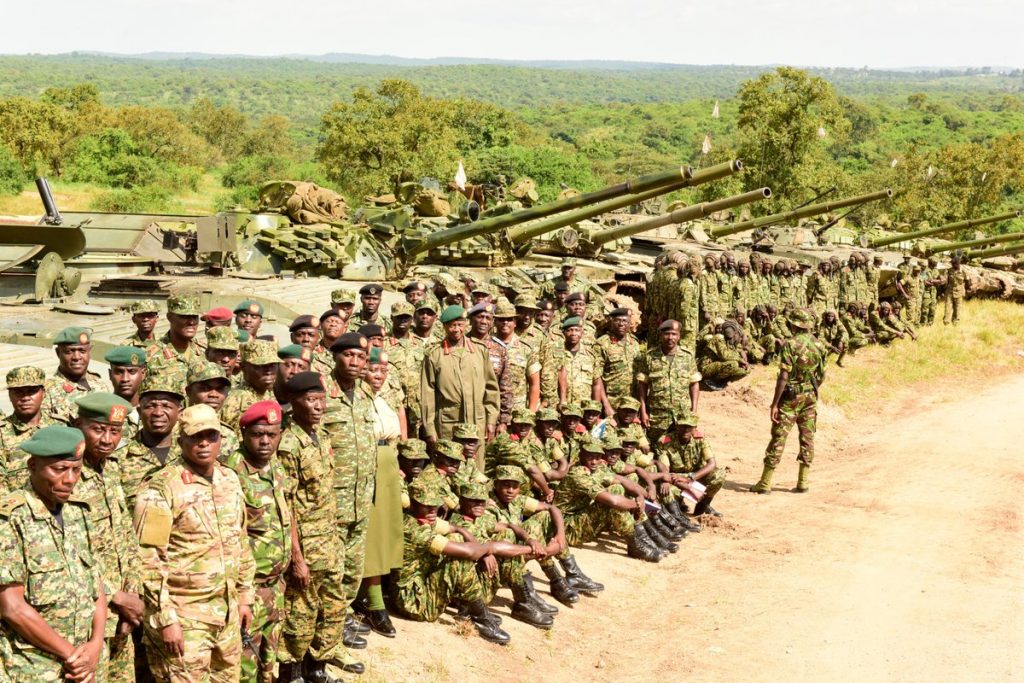By Don Wanyama
A vivid recollection of my childhood is that of a night, in 1984, when soldiers of the UNLA burst into our house at Tororo Girls School in the dead of the night, supposedly looking for guns.
The soldiers claimed my mother, a deputy headteacher, was hoarding guns and was a rebel collaborator. Of course the accusations were hogwash. The true story, as I learnt later, was that my mother was involved in a school leadership tussle with another senior administrator.
To sort out what was a professional issue, this administrator had bribed rogue soldiers and whereas they claimed to look for guns in the house, their exact intentions were more sinister, especially if my mother had been in the house that night.
Luckily, earlier in the day, my mother had travelled to Mbale and slept there. A househelp, my sister and myself took the brunt of the threats, with the househelp physically assaulted, hit with the butts of guns. They left, visibly disappointed but warning they would return to “sort out” my mother.
She could not take chances. When another teacher rode a bicycle to Mbale, about 50kms away, and briefed her, the instinctual reaction was to flee. She found her way to Malaba, Kenya, sent an emissary to pick my sister and I–and just like that, with our clothes as the only possession we could salvage, we began a decade of a challenging life in exile.
Listening to my mother and several victims of military brutality years later and reading multiple accounts of my country’s history, I totally appreciate why she could not stay around and try to seek justice.
The army, specifically the UNLA, had become the personification of state breakdown. Human Rights Watch estimates that UNLA soldiers between 1980 and 1985 killed over 300,000 innocent civilians.
Peter Bouckaert, a Human Rights Watch official, wrote: “Military excesses by UNLA against civilians are believed to have exceeded the brutality of the Amin era…By 1984, 200,000 civilians were slaughtered by the Obote regime and the number was higher by 1985.”
The army had become a mercenary force, one that could be hired by politicians to fix opponents, business people to get rid of rivals even professionals would use them to settle scores as it was with my mother.
In all this, those tasked with reining in the wayward soldiers looked the other side, looked on helplessly or actually encouraged this bloody decimation of its own citizens.
In explaining the cornerstones of a functional state, scholars from as early as the Bible’s Old Testament, Plato’s “Republic” (375 BC) and a host of contemporary academics, the role of a disciplined army has always been emphasised.
At the heart of a state true to its word, is stability, an ingredient that is then able to facilitate the free functioning of the other arms of state like the Executive, Legislature and Judiciary plus support arms like the Media.
It is therefore true to assert that pre-1986 Uganda was in a deep crater and a failed state with the institution charged with enforcing stability instead superintending over and dishing out instability.
At the 1985 Nairobi Peace Talks, it was one of the salient issues raised by then rebel leader Yoweri Museveni, warning that he would not hesitate to move onto Kampala if the army did not stop killing innocent civilians.
So, what is my point and why the walk down memory lane? This Thursday, on February 6th, the country will celebrate 39 years since the National Resistance Army (now UPDF) was born, in what is dubbed “Tarehe Sita”.
The NRA of course has roots earlier than 1981, going way back to President Museveni’s student days and the first team of fighters he took to Montepuez for training.
To appreciate the general strides the country has been able to make across these 34 years, one must understand the cardinal role of the NRA/UPDF in this journey.
The ideological clarity for the NRA is unmistakable: You are a people’s army and subordinate to civilian authority. You are the keeper of Ugandans’ lives and property, not the destroyer. You unfairly take away a life using a gun, you lose yours too.
This has ensured an over-supply of peace. It is so much that many, especially young Ugandans, have no idea what it means to be flagged down at a roadblock and flogged just for speaking in English to a soldier who is holding your identity card (often called ‘diagram’) upside down, while demanding you introduce yourself.
At the heart of this impeccable conduct of the UPDF has been President Museveni’s stellar guidance as Commander-in-Chief. He stays as the army’s enduring chief strategist, ethicist, guide and disciplinarian.
Today, it all looks so effortless. From border to border, Uganda is pacified. The economy has grown, social life is booming, we go to bed sure that we shall wake up to a stable country the next day.
Beyond our borders, this army is helping stabilize the rest of the region. Numerous surveys place the UPDF at the apex of the public’s most trusted institutions. It is a complete cycle–from an institution that represented the worst of the state to now the fresh beacon of hope and trust.
In that kind of situation, it is possible to forget the effort of those, especially President Museveni, who has worked for decades to see a reversal in what had become a major national stain.
Here is my prayer and suggestion. This Thursday, take a moment to say a prayer of gratitude for our soldiers. If you know a man or officer in uniform, send them a text to appreciate them. It is the least we can do for those who literally lose their lives so that the rest of us can have ours.
The writer is the Senior Press Secretary to His Excellency the President
Twitter: @nyamadon
